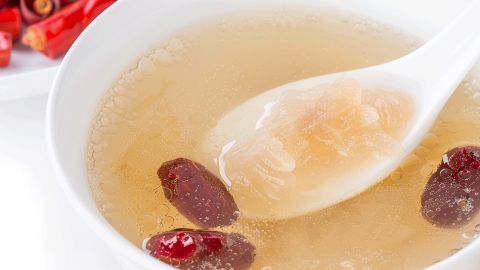Can people with deficiency of both qi and blood but who are also prone to excessive internal heat consume bird's nest (edible swiftlet nest)?
Generally, people with Qi and blood deficiency who are prone to excessive internal heat (fire) can consume bird's nest, but it is not recommended to eat too much at once. Detailed explanation is as follows:

Bird's nest has a neutral nature and does not belong to heat-inducing ingredients. Moderate consumption generally will not worsen symptoms of excessive internal heat. It contains high-quality protein and various amino acids; proteins provide energy for the body, while amino acids participate in multiple physiological activities, helping to improve symptoms caused by Qi and blood deficiency, such as fatigue and low spirits. Meanwhile, bird's nest has a delicate texture and is easily digested and absorbed, placing minimal burden on the gastrointestinal system, making it suitable for individuals with weak physical conditions due to Qi and blood deficiency. Additionally, bird's nest can be consumed together with nourishing and yin-enhancing ingredients such as lily bulbs and white fungus. This not only supplements nutrition but also helps alleviate tendencies toward excessive internal heat and supports bodily regulation.
For individuals with Qi and blood deficiency who are prone to excessive internal heat, each serving of bird's nest should not be excessive—just a small bowl is sufficient. When cooking, avoid adding heat-inducing ingredients like longan or jujube; instead, pair it with pears or lotus seeds. If symptoms of excessive internal heat such as dry mouth or throat discomfort occur after consumption, reduce the amount consumed or stop consuming temporarily. It is also important to maintain a balanced diet in daily life, avoid spicy and stimulating foods, and maintain regular sleep patterns.




